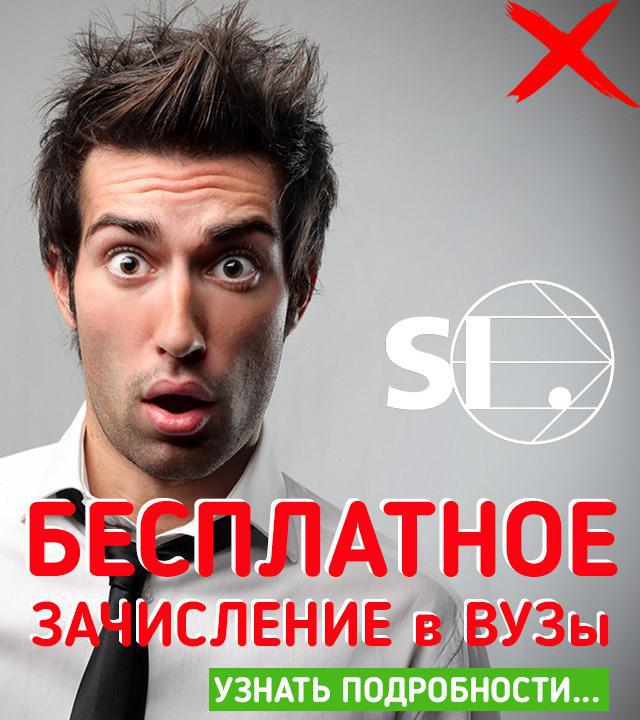Novosibirsk State University was founded in 1958. Now more than 8 thousand students study at this university. This is one of the most international universities in Novosibirsk – every eighth student here is an international student.
Types of educational programs:
- Bachelor’s Degree (4-5 years of study)
- Specialist’s Degree (6 years of study)
- Master’s Degree (2 years of study)
- Residency (2 years of study)
- Postgraduate study (3-4 years of study)
University Departments:
• Department of Economics
• Department of Natural Sciences
• Institute for the Humanities
• Department of Geology and Geophysics
• Department of Information Technologies
• Department of Mathematics and Mechanics
• Higher College for Computer Science
• V.Zelman Institute for Medicine and Psychology
• Department of Physics
• Institute for the Philosophy and Law
Rankings:
- QS World University Rankings: 246th in the world, 3rd in RF
- The Times Higher Education World Reputation Rankings: 101-125 in the world, 2-3 in RF
- THE World University Rankings the best student-to-staff ratio: 50th in the world, 2nd in RF
- THE Golden Age Universities: 95th in the world, 2nd in RF
- QS Graduate Employability Rankings: 301-500 in the world, 6-13 in RF.
Famous Alumni:
Among the University graduates there are 38 academicians and 41 corresponding members of the Russian Academy of Sciences, 1 Nobel laureate, and 2 graduates included in the list of the TOP 200 richest people in Russia according to Forbes.
Campus
The main building of the University houses the Department of Natural Sciences and the Department of Physics of NSU. The main building is known for its huge stained glass windows, which have become the "hallmark" of the university.
A new NSU building was opened in 2015. The architecture of the building is perfectly combined with the appearance of the Technopark of Novosibirsk Akademgorodok. The new building has modern classrooms and computer classes. There is a sports center with a swimming pool, saunas, gyms, a tennis court, and volleyball courts on the campus. There is a student canteen and buffets here.
NSU Sports Center is one of the largest in Novosibirsk. There are supermarkets, cafes and restaurants, a hospital and a polyclinic, and fitness clubs near the campus.
Interesting facts about the University:
- Graduates of NSU Department of Economics and Department of Information Technologies are among the highest paid specialists in Russia.
- NSU ranks the 6th among Russian Universities in terms of salaries of young professionals employed in the IT industry and the 8th in the field of economics and finance.
- The new University building resembles the character of the space saga "Star Wars" – the astromech droid R2D2.
- There is a stuffed real mammoth on the ground floor in the Institute of History and Ethnography.
- One of the discoverers of the prehistoric "Denisovan Man" in Altai – academician Anatoly Derevyanko – works at the NSU Institute for the Humanities
- NSU is closely connected with the Siberian Branch of the Russian Academy of Sciences. NSU students are engaged in scientific research at the institutes of the Siberian Branch of the Russian Academy of Sciences from their first year of studies.
Accommodation
The University dormitories are located in a green area of Akademgorodok. Scientific institutes of the Siberian Branch of the Russian Academy of Sciences, Novosibirsk Technopark “Akadempark”, the Scientist Club and the Botanical Garden are within walking distance from the University.
At the moment, the university has 10 dormitories. 1-3 people live in the rooms.
Preparatory courses:
1.
The program is for those students who have not studied Russian before.
The program includes comprehensive training of the Russian Language from scratch to B1 level and core subjects (in Russian):
For those who want to study Medicine or Natural sciences: Russian language, Chemistry, Biology, Physics, and Mathematics
For those who want to study Economics: Russian, Mathematics, Social Studies, and Introduction to Economics.
Duration of programs: October 3 – July 1.
2.
Preparatory program in Medicine in English.
This program involves studying Physics, Chemistry, Biology, Mathematics, and Russian. The program lasts 8 months from November 1 to June 31 (with further admission to the program of a six-year specialty in medicine taught in English).
PRICES
Tuition Fee:
- Preparatory program in Medicine in English – 4,500 US dollars (application fee 130 US dollars).
- Preparation in the Russian Language and core subjects: $2,750.
- Bachelor's, Specialist's and Master's degree programs Tuition Fees - 160 000 – 200 0000 rubles per a year.
Bachelor degree
List of Bachelor’s degree programs taught in Russian:
• Business Informatics
• Biological Information
• Molecular Biology
• General Biology
• Physiology
• Cytology and Genetics
• African and Oriental Studies
• General and Regional Geology
• Geophysics
• Geochemistry
• Oilfield and Mining Geophysics
• Geology and Geochemistry of Fossil Fuels
• Journalism
• Software Engineering and Computer Science
• Computer Science and Systems Engineering
• History
• The Theory and Practice of Intercultural Communication
• Translation and Translation Studies
• Algebra and Mathematical Logic
• Computational Mathematics
• Geometry and Topology
• Differential Equations
• Mathematical Economics
• Mathematical Analysis
• Applied Mathematics
• Theory of Probability and Mathematical Statistics
• Theory of Functions
• Algebra and Mathematical Logic
• Computational Mathematics
• Computing Systems
• Discrete Mathematics and Computer Science
• Programming
• Theoretical Cybernetics
• Management
• Hydrodynamics
• Mathematical Methods for Geophysics
• Mathematical Modelling
• Solid State Mechanics
• Theoretical Mechanics
• Mechatronics, Robotics, and Artificial Intelligence
• Clinical Psychology
• Occupational Psychology
• Sociology
• Physics
• Physical Informatics
• Philology
• History of Philosophy
• Social Philosophy
• Philosophy of Science
• Mathematical and Applied Linguistics
• Analytical Chemistry
• Bioorganic Chemistry
• Catalysis
• Inorganic Chemistry
• Organic Chemistry
• Physical Chemistry
• Chemistry of Solids
• Economics
• Law
Master degree
Master’s degree programs are taught both in Russian and in English.
Master’s degree programs taught in Russian:
• Biotechnology
• Plant genetics
• Biological Information
• Molecular Biology
• Structural Bioinformatics
• Physiology
• Сytology and Genetics
• Evolutionary Ecology and Zoopsychology
• Ecology
• IT-geophysics
• Oil and Gas Geology and Geochemistry
• Geophysical Methods of the Earth Crust Studies
• Mineralogy and the Geochemistry of Endogenous Processes
• Modeling of Petroleum Systems
• Petrology
• Regional Geology
• Stratigraphy
• Video Producing and Production
• Communications Management
• Content Strategy in Modern Media
• Computer Modeling and Data Analysis
• Software Systems Development Technology
• Information Processes and Systems
• Archeology of North and Central Asia
• Political and Sociocultural Transformations in Eurasian History
• Algebra and Mathematical Logic
• Computational Mathematics
• Geometry and Topology
• Differential Equations
• Mathematical Economics
• Mathematical Analysis
• Theory of Probability and Mathematical Statistics
• Theory of Functions
• Applied Mathematics
• Computing Systems
• Discrete Mathematics and Computer Science
• Mathematical and Computational Linguistics
• Programming
• Theoretical Cybernetics
• Innovative Entrepreneurship and Management
• Hydrodynamics
• Mathematical Methods for Geophysics
• Mathematical Modelling
• Mechanics of Macro- and Nanostructure Deformation
• Petroleum Engineering and Mathematical Modelling
• Theoretical Mechanics
• Applied Political Science
• Algorithms for analyzing large biological data
• Theory of Probability
• Counseling and Clinical Psychology
• Economic Sociology
• Quantum Information Technology
• Space and Special Instrumentation
• Physics of Acoustic and Hydrodynamic Waves
• Atomic and Molecular Physics
• Physics of Biological Systems
• Condensed Matter Physics
• Physics of Kinetic Phenomena
• Physics of Optical Phenomena
• Plasma Physics
• Methods for physico-chemical studies of condensed phases
• Semiconductor Physics and Microelectronic Engineering
• Physics of Modern Radio-Electronic Technology
• Accelerator Physics
• Nuclear and Particle Physics
• Physical Mechanics of Fluids and Gases
• Nuclear Medicine
• Linguistics and Literary Studies: Traditional and Modern Technologies
• Russian Language, Literature and Culture
• History of Philosophy
• Social Philosophy
• Philosophy of Science
• Mathematical and Applied Linguistics
• Analytical Chemistry
• Bioorganic Chemistry
• Biotechnology
• Catalysis in Carbonaceous Raw Materials Processing
• Catalysis and Adsorption
• Nanocomposite Materials
• Inorganic Chemistry
• Organic Chemistry
• Physical Chemistry
• Chemical Materials Science
• Chemistry of Solids
• Energy-saving Catalysis
• Modern Economic Modeling: Traditional Approaches, Behavioral Economics, and Econometric Analysis
• Digital Technologies in Finance: Data Analysis and Practical Solutions
• Constitutional Law, Municipal Law, Constitutional Court Process and State, Municipal Governance
• Master's in Private Law. Civil Law, Family Law, Corporate Law
• Master's in Private Law. Healthcare Lawyer
• Master's in Business Law and Arbitration Process
• LegalPprotection and Management of Intellectual Property and Innovation
• Intellectual Property Law and Digital Technologies
• Criminal Law and Criminal Procedure
Master’s degree programs taught in English:
• Artificial Intelligence & Big Data Analytics
• Pharmaceutical Chemistry
• Functional Anatomy
• Materials Science
• Paleobiological and Stratigraphic Aspects of Paleobiota Research
• Fundamental and Applied Geosciences
• Financial Management
• Doing Business for Green Economy
• Classics and Philosophy
• Quantum Technologies and Nanoscience
• Quantum Technologies and Cryptography
Residency
University Residency programs are taught both in Russian and in English:
Residency programs taught in Russian:
• Obstetrics and Gynecology
• Anesthesiology-resuscitation
• Gastroenterology
• Dermatovenerology
• Cardiology
• Neurology
• Neurosurgery
• Oncology
• Plastic Surgery
• Radiology
• Therapy
• Urology
• Surgery
Residency programs taught in English:
• Anesthesiology and Intensive Care
• Dermatovenerology
• Gastroenterology
• Neurosurgery
• Oncology
• Plastic Surgery
• Urology
Specialist degree
Specialist’s degree programs taught in Russian:
• Analytical Chemistry
• Bioorganic Chemistry
• Catalysis and Adsorption
• Inorganic Chemistry
• Organic Chemistry
• Physical Chemistry
• Chemistry of Solids
• General Medicine
Specialist’s degree programs taught in English:
• General Medicine






